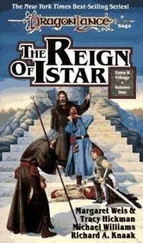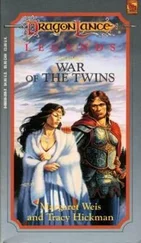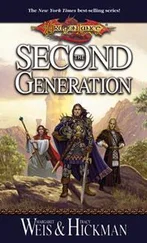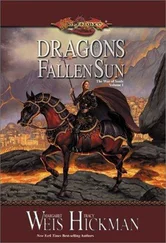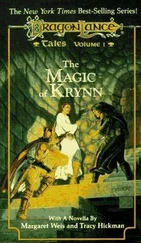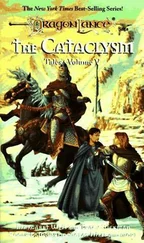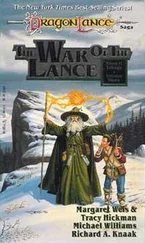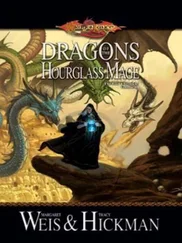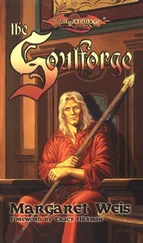Margaret Weis - The reign of Istar
Здесь есть возможность читать онлайн «Margaret Weis - The reign of Istar» весь текст электронной книги совершенно бесплатно (целиком полную версию без сокращений). В некоторых случаях можно слушать аудио, скачать через торрент в формате fb2 и присутствует краткое содержание. Жанр: Фэнтези, на английском языке. Описание произведения, (предисловие) а так же отзывы посетителей доступны на портале библиотеки ЛибКат.
- Название:The reign of Istar
- Автор:
- Жанр:
- Год:неизвестен
- ISBN:нет данных
- Рейтинг книги:5 / 5. Голосов: 1
-
Избранное:Добавить в избранное
- Отзывы:
-
Ваша оценка:
- 100
- 1
- 2
- 3
- 4
- 5
The reign of Istar: краткое содержание, описание и аннотация
Предлагаем к чтению аннотацию, описание, краткое содержание или предисловие (зависит от того, что написал сам автор книги «The reign of Istar»). Если вы не нашли необходимую информацию о книге — напишите в комментариях, мы постараемся отыскать её.
The reign of Istar — читать онлайн бесплатно полную книгу (весь текст) целиком
Ниже представлен текст книги, разбитый по страницам. Система сохранения места последней прочитанной страницы, позволяет с удобством читать онлайн бесплатно книгу «The reign of Istar», без необходимости каждый раз заново искать на чём Вы остановились. Поставьте закладку, и сможете в любой момент перейти на страницу, на которой закончили чтение.
Интервал:
Закладка:
Margaret Weis,Tracy Hickman, Michael Williams,Richard A. Knaak, Roger E. Moore,Douglas Niles,Nancy Varian Berberick
The reign of Istar
Paladine, you see the evil that surrounds me! You have been witness to the calamities that have been the scourge of Krynn… You must see now that this doctrine of balance will not work!
"… I can sweep evil from this world! Destroy the ogre races! Bring the wayward humans into line! Find new homelands far away for the dwarves and the kender and the gnomes, those races not of your creation…
"… I demand that you give me, too, the power to drive away the shadows of evil that darken the land!"
So the Kingpriest prayed on the day of the Cataclysm.
He was a good man, but intolerant, proud. He believed his way to be the right way, the only way, and insisted that everyone else — including the gods — follow his thinking. Those who disagreed with him were, by definition, evil and, according to the law, must be "converted" or destroyed. The stories in this volume deal with the effects of such edicts and beliefs on the people of Ansalon at the time prior to the Cataclysm.
Michael Williams begins this series, appropriately, with a prophecy for the last days in "Six Songs for the Temple of Istar."
"Colors of Belief," by Richard A. Knaak, tells the story of a young knight who travels to Istar in search of the truth. He finds it, though not quite in the way he expected.
A crusty old trainer of young knights must cope with a most unorthodox recruit in "Kender Stew," by Nick O'Donohoe.
"The Goblin's Wish," by Roger E. Moore, is a tale of a disparate band of refugees, driven together by need, who almost find the power to overcome evil. Almost.
"The Three Lives of Horgan Oxthrall," by Douglas Niles, continues the theme of unlikely allies, forced to band together in the face of a common enemy, as told by a clerk to Astinus.
Nancy Varian Berberick writes about alliances of a more intriguing nature in "Filling the Empty Places."
Dan Parkinson tells how the small and seemingly insignificant can end up playing an important role in history in "Off Day."
Our novella, "The Silken Threads," reveals the fate of the true clerics and tells how Nuitari, the guardian of evil magic, attempts to thwart the ambitions of the black-robed wizard known as Fistandantilus.
We are delighted to be visiting Krynn once again, along with many of the original members of the DRAGONLANCER game design team and some new friends we met along the way. We hope you enjoy "The Reign of Istar" and that you will join us for further journeys through Krynn in subsequent volumes in this series.
Margaret Weis and Tracy Hickman
Six Songs For the Temple of Istar
According to legend, the author of these songs is the obscure Silvanesti bard Astralas, born about the time of the Proclamation of Manifest Virtue. Well over a century old when his voyage commenced, the elven prophet supposedly set sail for Istar shortly before the Edict of Thought Control, returning with a series of confused and confusing visions of an impending disaster. He vanished under mysterious circumstances around the time of the Cataclysm; some say that he was destroyed by the elven priestesses of Istar, acting in accordance with the edict. Some also say that in the nightmare days of chaos that followed the Cataclysm, Astralas traveled the forests of Ansalon, forever reciting these songs. The fifth of the songs — the account of the visions themselves — occurs in more than a hundred oral versions throughout the continent. This, however, is the only known manuscript version.
Quivalen Sath, Archivist of The Qualinesti Poetic RecordsI
Astralas, called into song by the fluted god
Branchala of the leaves, called when I haunted the woods of Silvanost, two thousand and sixty years since the signing of scrolls, since the sheathing of armies.
O when the god called me, the twin moons crossed on the prow of my ship, and the ocean was red on silver, encircling light upon inarticulate light from the settled darkness rushing, awaiting my song.
And O when the god called me, this was my singing, my prophecy compelled in a visitation of wind.
II
The language of wind is one tongue only, pronounced in the movement of cloud and water, voiced in the rattle of leaves in the breath between waiting and memory, it stalks elusive as light and promise.
The language of wind is the vanishing year preserved in recollection, and always it yearns for a season the heart might have been in its wild anointing.
And the wind is always your heartbeat, is breathing remote as the impassive stars, and it moves from arrival to leaving, leaving you one song only:
Oh, that was the language of wind,
you say, and what does it mean
To the leaves and the water,
always, what does it mean?
So it found me the first time at the banks of Thon-Thalas, at the last edge of river, after the ministries of inkwell and tutor, after the damaged heirloom of days, when the long thoughts burrow and the childhood dances on dark effacements of memory, losing the self in the dance.
I remembered too much, unabled for the sword and buckler, for spellbook and moon, for altar and incense, for the birds' veiled grammar and the seasons' alembic, and always the river was telling me telling me
Come, Astralas, come to the waters:
I am the last home, it was saying,
The refuge of dreams
And the sleep of reason.
Come to midcurrent, Astralas.
I shall carry you past your failures.
Come to midcurrent and open your arms
As you fall into spindrift,
To movement, to light on the water,
To water itself, enraptured and lost
As the whole world vanishes.
And always the river spoke like this, always the dark current lulling the heart and the mind into that undertow where the homelands shift behind you and fade, and you think they have vanished in the necessity of rivers, in the battlements of forest, so that if you return to recover your path you are lost in the maze of leaf and inevitable current, of fore and aft, of the homelands always receding.
So spoke the river, and darkly I hearkened, suspended in darkness, in the heart's surrender.
A boat for the passage
I began to fashion, hides stripped in the lime pits sealed with tallow and stitched by the tendon of flax as the awl and the needle passed through and over the supple and skeletal wood:
The sails bellied forth in carnivorous winds, and in dark, in surrender, the ship moved rudderless, launched on insensible currents, borne to the South where the Courrain covers the edge of the world.
And borne to the South
I lay on the deck, and the boat was a cradle, a bride's bed, a gray catafalque carried into the night, it was strong wine and medicine, sleep past remembrance and past restoration, and as I lay down in the veinwork of halyards
I decided to rise up no longer.
And the date of my death was my embarkation.
III
Something there is in the rudderless sailing, abandoning hope as the husk of desire, architectures of boat and body coalesce with the water and the disburdening wind.
In the south, the sails filled with words and the boat took wing above the denial of waters.
Softly the wind spoke under the pulse of the sails:
Come, Astralas, ride into prophecy:
I am the breath of a God,
the wind was saying, the source of dreams and the webwork of reason.
Astralas, open your arms:
I shall pass through your fingers as brindled light,
as a vision from the brows of a weary king.
Hasten to Istar, domed and templed,
Читать дальшеИнтервал:
Закладка:
Похожие книги на «The reign of Istar»
Представляем Вашему вниманию похожие книги на «The reign of Istar» списком для выбора. Мы отобрали схожую по названию и смыслу литературу в надежде предоставить читателям больше вариантов отыскать новые, интересные, ещё непрочитанные произведения.
Обсуждение, отзывы о книге «The reign of Istar» и просто собственные мнения читателей. Оставьте ваши комментарии, напишите, что Вы думаете о произведении, его смысле или главных героях. Укажите что конкретно понравилось, а что нет, и почему Вы так считаете.

